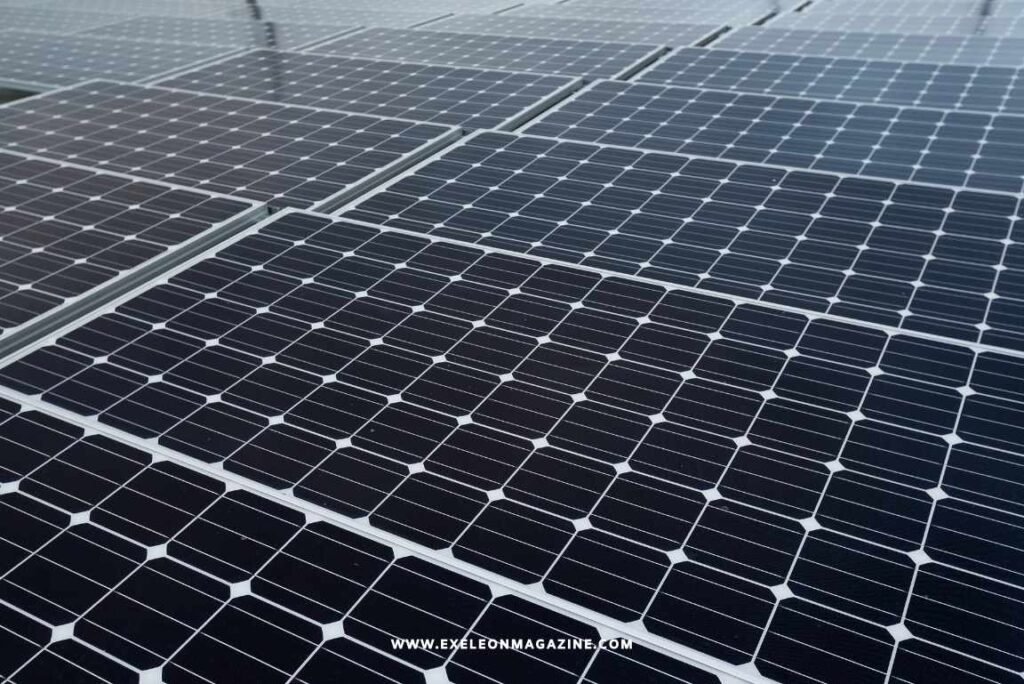The development of renewable energy technologies is an important part in the fight against climate change and lessening our dependence on fossil fuels. As these new methods are getting better, there becomes a bigger need for materials that can handle high temperatures and rough conditions. Strong materials which can resist heat help to make renewable energy systems more effective, long-lasting and perform well overall. This supports improvement in this critical area.
Solar Power Systems
Renewable energy, especially in solar power systems, frequently utilizes heat resistant materials. Solar panels, like concentrated solar power (CSP) systems, function at elevated temperatures to change sunlight into electricity. Using materials that can handle high heat is very important for the good working and long life of these systems. Advanced ceramics along with heat-resistant metals are frequently employed in solar receivers and reflectors because they can endure the high temperatures of concentrated sunlight without degrading. This quality assists in enhancing energy conversion efficiency, leading to more productive solar power systems that remain operational for lengthier periods of time.
Wind Turbines
In making wind turbines, we also need materials that can resist heat. The mechanical parts like bearings, gears and generators in a wind turbine experience considerable friction and heat while they work. Using alloys and composites that are resistant to heat in these parts is important for them to endure high temperatures without wearing out quickly. This could be seen as an improvement to the toughness of wind turbines, which would lower maintenance expenses and non-operational periods. Because of this, wind energy would become more dependable and inexpensive in the long run.
Geothermal Energy
Geothermal energy, which uses heat from deep within the Earth to make electricity, needs drilling into Earth’s crust. This drilling may come across very high temperatures. When we create the tools for drilling and also build pipes or turbines used in geothermal power stations, we must use materials that can withstand high heat. These materials which can endure high temperatures must also possess resistance against corrosiveness and high pressures. The advancements in heat-resistant alloys and coatings have greatly enhanced the effectiveness and dependability of geothermal systems; they function excellently even under severe circumstances, ensuring consistent production of environmentally friendly energy.
Biomass Energy
Energy from biomass means changing organic substances into electricity, heat or biofuels. This occurs via methods such as combustion and gasification. These actions produce extreme temperatures that necessitate the employment of materials that can endure high heat in reactors, boilers and heat exchanges. The strength and capability of these components to withstand heat are crucial for ensuring the longevity and safety of biomass energy systems. Heat resistant materials, which can withstand high temperatures and resist corrosions caused by the byproducts of burning biomass, play a crucial role in securing the reliability of biomass plants. This is essential for encouraging more widespread use of this renewable energy source.
Energy Storage Systems
Storage systems for energy like batteries and thermal energy storage are very important in balancing supply and demand within renewable power grids. The quality and life of these systems can be negatively impacted by high temperatures. To lessen this effect, heat resistance materials are utilized when building battery components as well as the media for thermal storage. As an example, advanced ceramics and phase-change materials (PCMs), which have a strong ability to handle heat, are employed for improving the performance and durability of energy storage systems. These substances assist with creating better ways to store energy that can be trusted upon, thus aiding in the incorporation of renewable power into grids.
Future Prospects
The progress in creating new materials that can withstand high temperatures is pushing the advancements in renewable energy. The research and work concentrates on developing stable thermal material, lasting material, and environment resistant material. This is projected to improve the effectiveness and cost of renewable energy systems. It will also speed up the shift towards a sustainable future for our energy needs.
The importance of heat-resistant materials cannot be overstated in the progress of renewable energy technologies. They are crucial for the efficiency, endurance and dependability of solar power systems, wind turbines, geothermal plants, biomass energy systems as well as storage solutions because they can tolerate extreme temperatures and severe operational conditions. As more people use renewable energy resources, continuous advancements in heat-resistant materials are very important to determine how sustainable energy will develop further. These materials help greatly in the worldwide fight against climate change and lessening reliance on fossil fuels by making renewable energy systems stronger and more effective.
You May Also Like:










